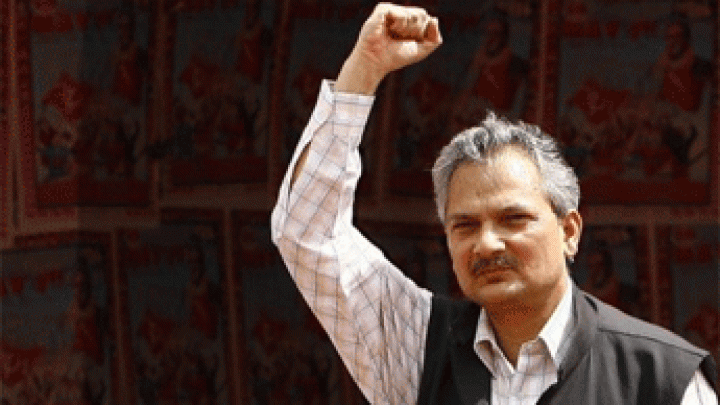

KATHMANDU: Nepal's former Maoist premier Baburam Bhattarai on Saturday resigned from his party and parliament, days after announcing his support for protesters fighting to bring changes to a new constitution.
The protesters, who belong to the Madhesi community, are angry about plans to divide the country into seven federal provinces under the charter adopted on Sunday.
Former Maoist rebel Bhattarai has consistently attacked lawmakers -- including members of his own party -- for not taking minorities' concerns into account while drafting the constitution.
"Effective from today's date I have resigned from all obligations, responsibilities at all levels as well as general membership of the UCPN Maoists," Bhattarai told a press conference, referring to the Unified Communist Party of Nepal (Maoist), in which he had been a senior member.
"There is no option of returning to a house you have left, an old house, a damaged house," Bhattarai said, announcing his resignation from Nepal's national parliament as well.
"I will now do what I can as a citizen of this country... as long as I am alive I will work for the country and the people," he said.
The new charter, Nepal's first to be drawn up by elected representatives, is the final stage in a peace process that began when Maoist rebels laid down arms in 2006 after a decade-long insurgency aimed at creating a more equal society.
But the constitution's adoption has been marred by weeks of violent protests in Nepal's southern plains, home to half of the country's population.
More than 40 people have died in weeks of clashes between police and protesters from the Madhesi and Tharu communities, ethnic minorities who say the new internal borders leave them under-represented in the national parliament.
Protesters in Birgunj town, 90 kilometres (55 miles) south of Kathmandu, on Friday blocked a major hub for oil and food imports into the Himalayan nation. The movement of cargo through other border checkpoints has also declined.
Fears of a fuel shortage saw dozens of commuters line up at gas stations in Kathmandu while the ongoing protests have sparked concern in India, which has traditionally exerted significant political influence in Nepal.
Work on the constitution began in 2008 after the Maoists won parliamentary elections and abolished the monarchy. But power-sharing squabbles between parties stymied progress on the draft.
Lawmakers finally reached agreement in June this year, spurred by a 7.8-magnitude earthquake two months earlier that killed nearly 8,900 people and destroyed more than half a million homes.
AFP




